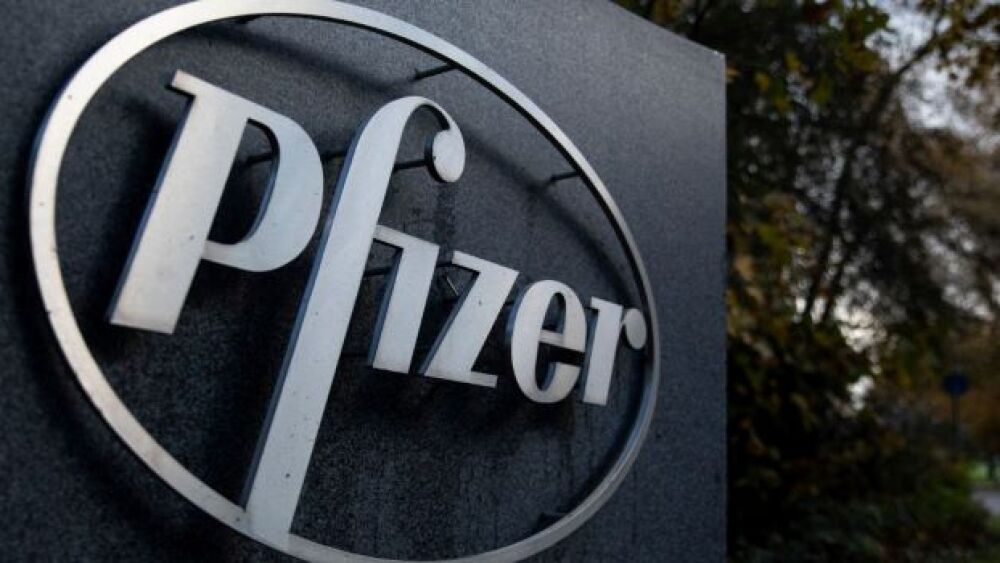Pfizer reported its third-quarter 2021 financials, citing $24.1 billion in quarterly revenues, a stunning 130% operational growth.
Dan Kitwood/Getty Images
Pfizer reported its third-quarter 2021 financials, citing $24.1 billion in quarterly revenues, a stunning 130% operational growth. If you exclude the sales of its COVID-19 vaccine with BioNTech, revenues grew 7% operationally to $11.1 billion. The company raised its full-year guidance to range from $81 to $82 billion.
“While we are proud of our third quarter financial performance, we are even more proud of what these financial results represent in terms of the positive impact we are having on human lives around the world,” said Albert Bourla, Pfizer’s chairman and chief executive officer. “For example, more than 75% of the revenues we have recorded up through third-quarter 2021 for Comirnaty have come from supplying countries outside the U.S., and we remain on track to achieve our goal of delivering at least two billion doses to low- and middle-income countries by the end of 2022 — at least one billion to be delivered this year and one billion near year, with the possibility to increase those deliveries if more are placed by these countries for 2022.”
One billion of the vaccine doses will be sold at a not-for-profit price to the U.S. government, which plans to donate them to the poorest countries.
Although the COVID-19 vaccine is undoubtedly the big driver of the company’s profits this year and in the near-future, less obvious in the report was Pfizer’s struggles with its gene therapy pipeline. Bourla promised earlier in the year that the company would become a leader in gene therapy, and followed up that promise last month when it exercised options to license novel capsids for gene therapies from Voyager Therapeutics.
Pfizer paid Voyager $30 million up front and $20 million in exercise fees for a pair of options. Voyager is also eligible for up to $580 million in various development, regulatory and commercial milestones linked to licenses for two undisclosed Pfizer transgenes with a Voyager licensed capsid. Voyager is also eligible for mid- to high-single-digit tiered royalties.
However, Pfizer halted a Phase III hemophilia A trial after reports of high levels of Factor VIII in some patients. Reportedly, several patients in the trial had Factor VIII levels above 150%, which are linked to increased risk of blood clots (thrombosis). Factor VIII normal range levels are 50% to 150%, with levels below 50% indicative of hemophilia A. Pfizer has stopped screening and dosing and plans to revise the protocol related to elevated factor VIII levels.
Also associated with hemophilia A and B, Pfizer and the U.S. Food and Drug Administration (FDA) decided to not run interim analyses for two trials, instead planning to wait for complete analyses on 50 or more participants in the hemophilia A trial and 40 in the hemophilia B trial. That will extend the expected readout.
In a letter to Parent Project Muscular Dystrophy (PPMD) in late September, Pfizer indicated there had been three serious adverse events in its ongoing trial of its gene therapy for Duchenne muscular dystrophy (DMD). The study is evaluating its gene therapy fordadistrogene movaparvovec. Pfizer’s External Data Monitoring Committee determined the adverse events were linked to the treatment and that specific mutations in the dystrophin gene are possibly linked to a higher risk for the issues.
In the amendment, enrollment will exclude DMD patients with any mutation that affects exons 9 through 13, inclusive, or a deletion that affects both exon 29 and exon 30. That represents approximately 15% of DMD patients. That clinical trial is not being run in the U.S. until the FDA approves the study. It is being conducted in Italy, Spain, Israel, U.K., South Korea, Japan, Russia and Canada.
Otherwise, for the third quarter, Pfizer reported revenues of $14.583 billion for vaccines, $3.085 billion for oncology, $2.097 billion for internal medicine, $2.367 billion for hospital, $1.094 billion for inflammation and immunology, and $869 million for rare diseases. That comes to a total of $24.094 billion, compared to $10.277 billion in the third quarter of 2020.
“I continue to be very pleased with the way our business is performing in 2021, both including and excluding the significant contributions of Comirnaty to our results,” stated Frank D’Amelio, Pfizer’s chief financial officer and executive vice president, Global Supply.
He added, “We continue to make progress on advancing our internal pipeline across all therapeutic areas while also prudently deploying our capital through partnerships and bolt-on acquisitions to gain access to cutting-edge platforms, science and technologies that could potentially bolster our growth in the latter half of this decade.”
Featured Jobs on BioSpace





